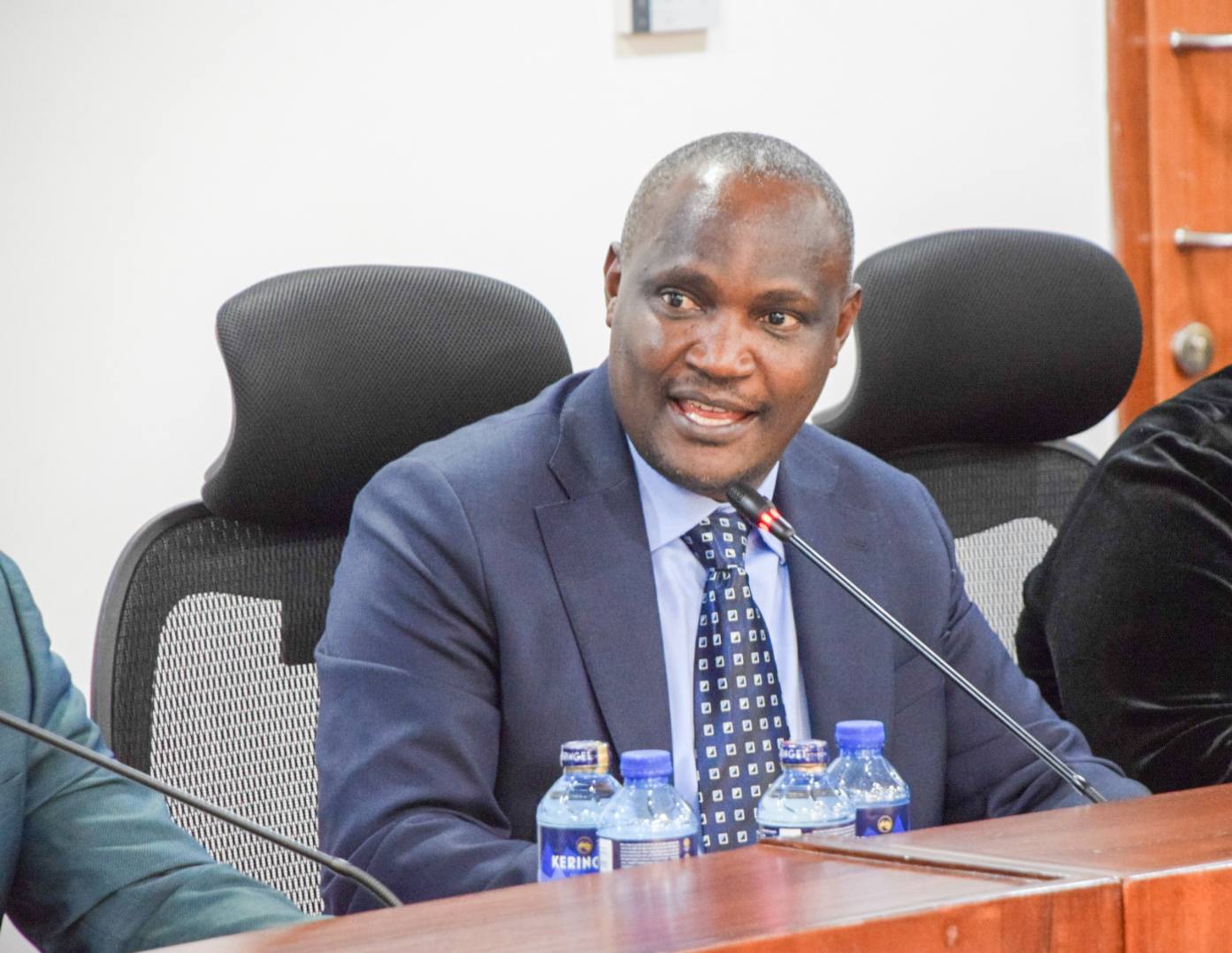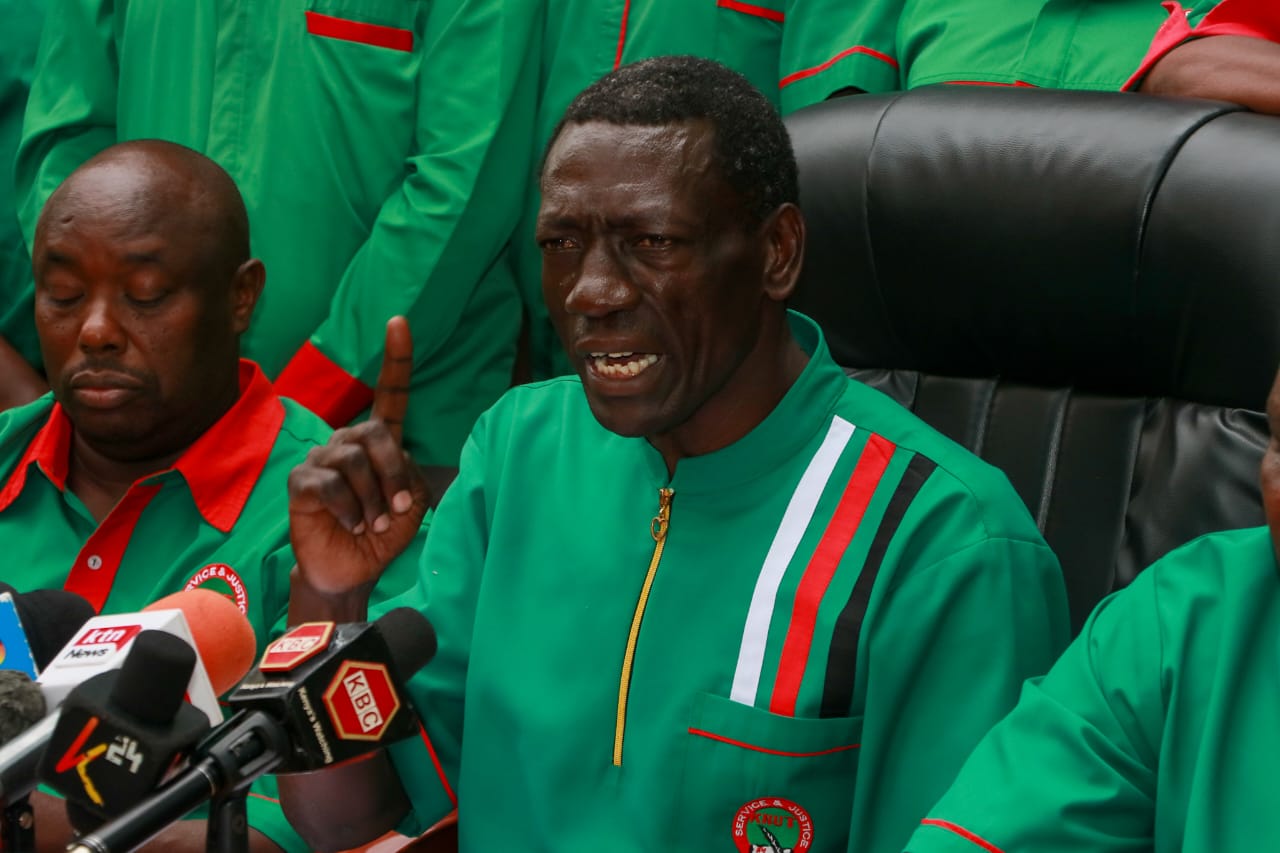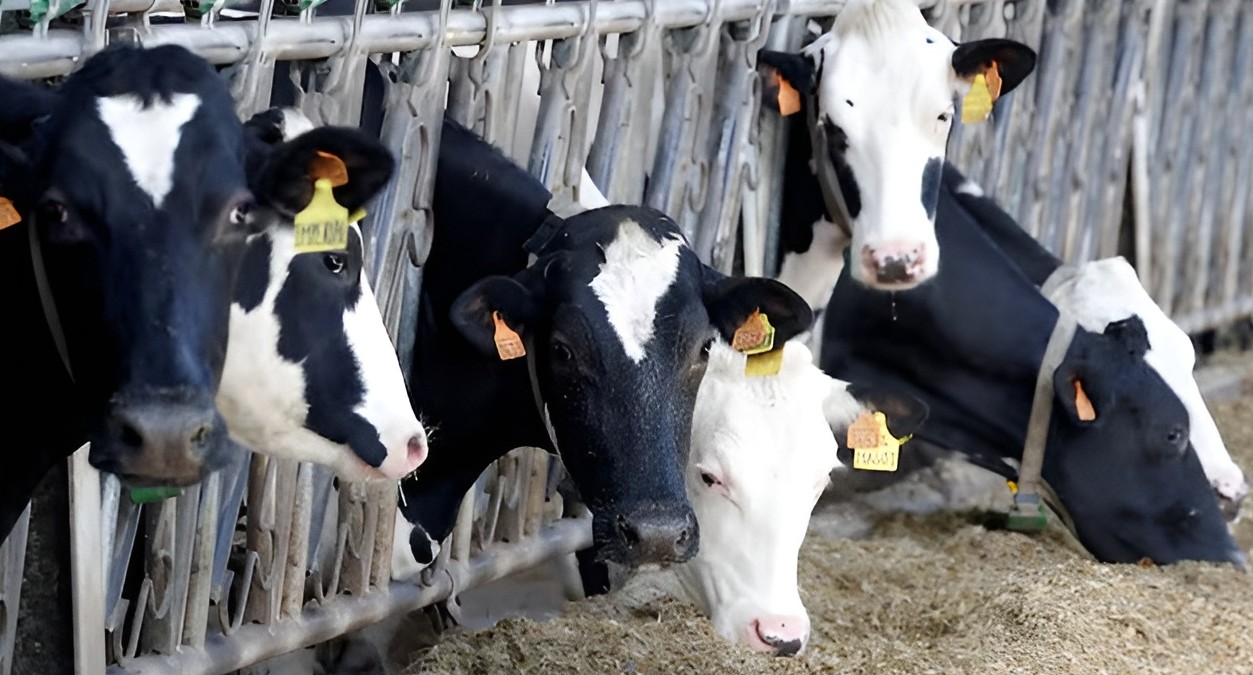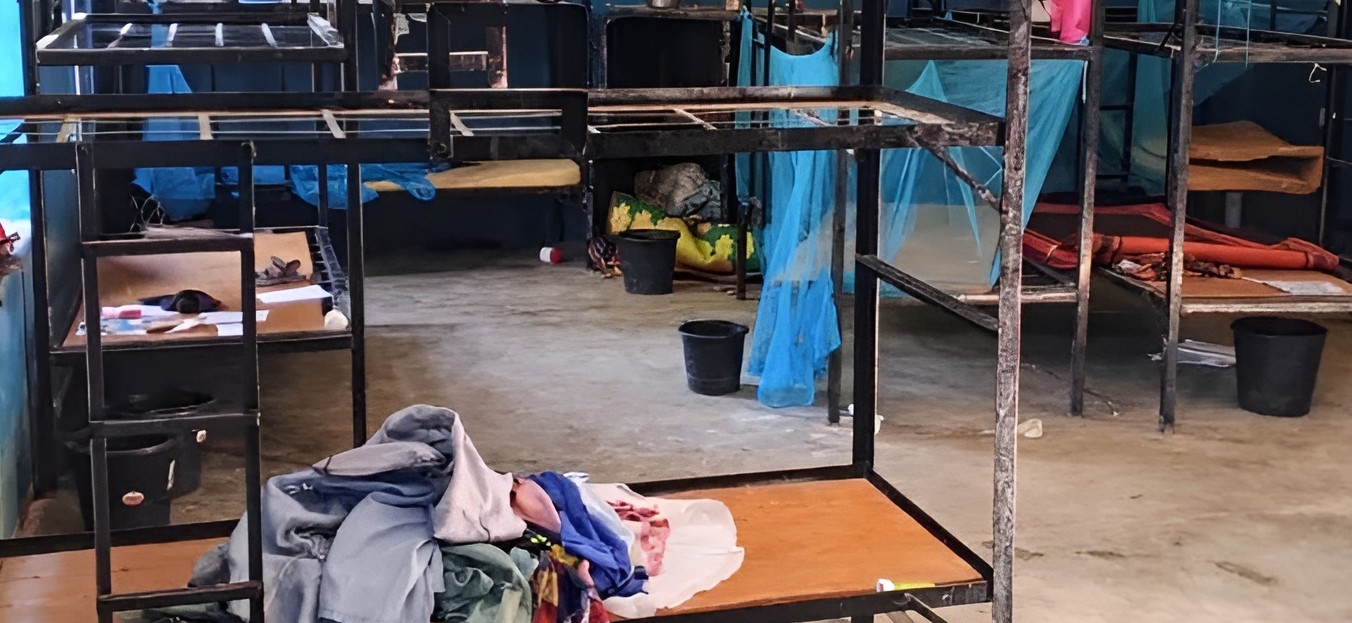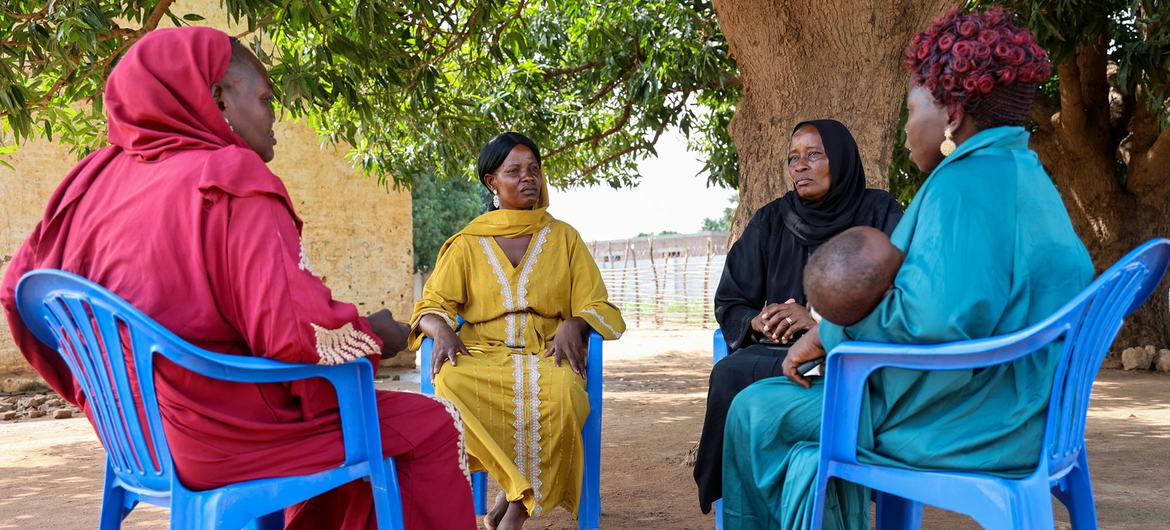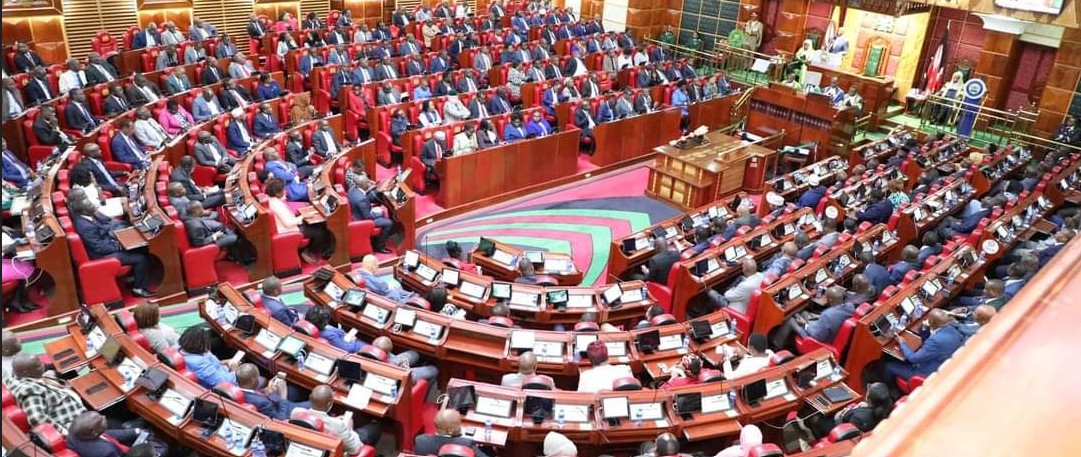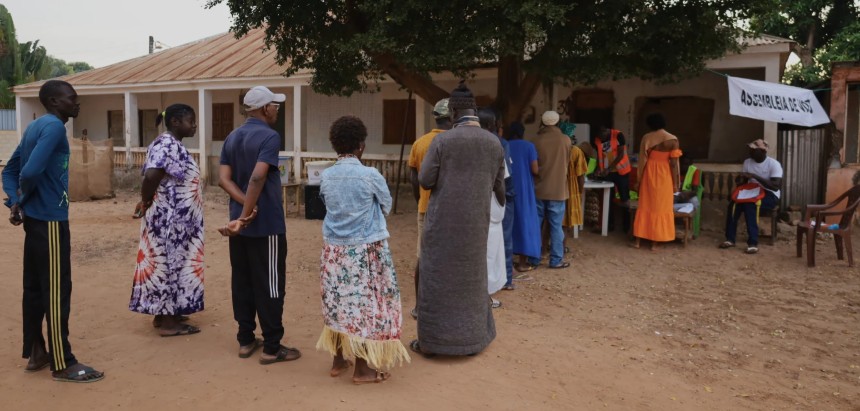Cervical cancer: Why most women are missing out on HPV vaccine

Kenya ranks among the top 20 countries with the highest burden of cervical cancer, with about 5,845 new cases and 3,591 deaths annually.
Selina Akose, a 32-year-old mother, is among the many women who have missed out on the HPV Vaccine, responsible for cervical cancer intervention, due to a lack of awareness.
Living in Nairobi, Selina has never considered cervical cancer screening or the HPV vaccine a priority. Her demanding job consumes most of her time and she admits most of her relatives are unaware of it.
More To Read
- Kenya reports progress in HPV vaccination, still short of WHO target
- 10 runners race up Mt Kenya in 10 hours to honour women lost to cervical cancer
- Kamukunji rallies against vaccine myths as leaders take immunisation door-to-door
- Cervical cancer screening in Kenya alarmingly low with only 1 in 4 women tested
- Kamukunji’s Kinyago Kanuku hosts groundbreaking breast and cervical cancer screening
- HPV blood test shows promise for early detection of multiple cancers, study finds
"If I don't know about cervical cancer screening, I doubt my mother in the village knows about it or the vaccine. I always thought vaccines were only given to young children. I never followed up because I assumed it wasn't necessary after a certain age," she says.
This misconception, combined with misinformation and myths about cervical cancer prevention, has further contributed to Akose's lack of understanding.
"I've heard rumours that the vaccine is part of family planning, so I never paid much attention. With my busy schedule, it just didn't seem like something to worry about."
She even wonders why the health workers don't go door-to-door administering the vaccine like they do with polio. "If we had better information, we could make more informed decisions."
Said Abdi, a resident of Majengo, views cervical cancer as exclusively a women's issue. Coming from a culture where certain topics, particularly those related to women's sexuality, are considered taboo, he has never taken the time to learn more or engage with the subject.
"When it comes to women and their sexuality, like menstruation and things related to it, I usually prefer to stay away from such matters," Said explains.
He admits he does not know the HPV vaccine or its significance in preventing cervical cancer. Instead, he has entirely left the responsibility to his wife, trusting her to make decisions about the vaccine, screening, and related healthcare needs.
"If they need support financially, I can provide it. But those issues are very sensitive, and I prefer to keep it that way."
Marium Said, a resident, who is aware of the HPV vaccine, says she often hears women in her community voicing their doubts about it, questioning why the government focuses only on girls of a certain age and why the vaccine isn't offered to all women.
"I've heard about cervical cancer screening and the vaccine for young girls at the hospital, but I've never gone for screening myself or considered vaccinating my children," she admits.
Marium explains how easily misinformation spreads in communities lacking reliable sources of information. "When you constantly hear people talking negatively about something and you don't have access to accurate information, it's easy to believe what they're saying. For instance, I believed that if my children got vaccinated, they wouldn't be able to have children later."
She adds that trust in influential figures can reinforce such fears. "No mother wants to put their child at risk, but when someone you trust—like your husband or even a community leader—says the vaccine isn't safe, you tend to believe them. It's even harder to trust when you've seen past situations like with the COVID vaccine, where people said it wasn't safe and some died. It becomes difficult to know who to trust or what to believe."
A spot check by the Eastleigh Voice revealed that widespread fears and misconceptions persist among parents, particularly the belief that the HPV vaccine could affect their children's ability to have children in the future.
Many parents also question why the vaccine targets adolescent girls specifically, highlighting a lack of accessible and reliable sources of information to address their concerns.
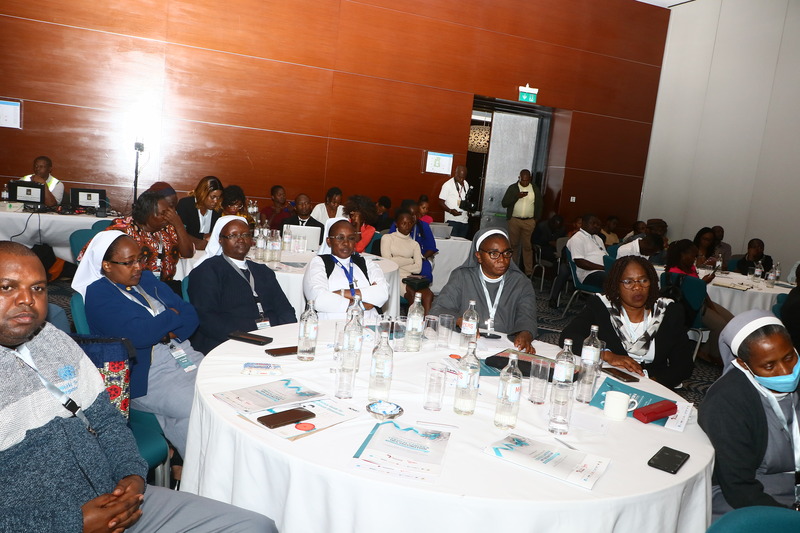 The participants who attended the Nairobi convening on cervical cancer and HPV vaccination at Radisson Blue Hotel in Nairobi on June 13 2024. (Photo: Justine Ondieki)
The participants who attended the Nairobi convening on cervical cancer and HPV vaccination at Radisson Blue Hotel in Nairobi on June 13 2024. (Photo: Justine Ondieki)
What is cervical cancer
Cervical cancer is a type of cancer that occurs in the cells of the cervix. It typically develops slowly over time, starting with precancerous changes in the cervical cells, which, if untreated, can progress to cancer. Regular screening can detect these changes early, preventing the development of invasive cervical cancer.
The primary cause of cervical cancer is persistent infection with high-risk types of human papillomavirus (HPV). HPV is a common virus spread through sexual contact, and while most HPV infections resolve on their own, some high-risk strains can lead to abnormal cell changes in the cervix that may develop into cancer.
Cervical cancer is both preventable and treatable, with prevention efforts proving most effective when targeted at young girls aged 9-15, who are eligible for the HPV vaccine. While many countries vaccinate both girls and boys, Kenya has prioritised girls as the highest-risk group. However, the uptake of the vaccine remains hindered by persistent misconceptions.
When the HPV vaccine was first introduced, some communities believed it was a family planning initiative, leading to fear and resistance among parents who worried about its potential impact on their children's health.
This misconception has persisted over the years, with skepticism remaining strong among some individuals who still hold on to these beliefs. As a result, the acceptance of the vaccine remains limited, leaving many girls unprotected against cervical cancer—a disease that continues to claim thousands of lives annually.
Risk factors
The risk factors for cervical cancer in Kenya include persistent HPV infection, early sexual activity, having multiple sexual partners, a weakened immune system (especially in women living with HIV), smoking, long-term use of birth control pills, and lack of regular screenings. Limited healthcare access, particularly in rural areas, also contributes to the spread of the disease. Misconceptions about the HPV vaccine further hinder prevention efforts.
HPV is the primary cause of cervical cancer, responsible for 70% of cases globally. While most HPV infections are cleared by the immune system, persistent infections with high-risk strains can lead to cancer.
Six HPV vaccines have been developed worldwide to protect against high-risk types such as 16 and 18, and these vaccines are highly effective.
The World Health Organisation (WHO) recommends vaccinating girls aged 9–14 before they become sexually active, and in some countries, boys are also vaccinated to help reduce HPV prevalence.
Dr Paula Bor, Head of the National Cancer Control Programme, highlighted that cervical cancer is the leading cause of cancer-related deaths in Kenya, with over 5,000 new cases diagnosed annually. Despite efforts, Kenya remains far from achieving its 90% vaccination goal, with only 48% of eligible girls vaccinated since the programme began in 2019. This falls short of the 80% target, with just 2.3 million girls vaccinated to date.
"In Kenya, we prioritise vaccinating girls because they are the most at risk, as they have a cervix and are more likely to be affected by cervical cancer," she explains. "We target this age group to ensure the vaccine is administered before they become sexually active." She also highlights that one of the key risk factors for cervical cancer is early sexual activity.
WHO reports that in 2022, approximately 660,000 new cases of cervical cancer and 350,000 deaths occurred worldwide, with 94% of these cases in low- and middle-income countries.
Regions like sub-Saharan Africa, Central America, and Southeast Asia have high rates due to limited access to vaccination, screening, and treatment, as well as factors such as HIV prevalence and poverty. Women living with HIV are six times more likely to develop cervical cancer, accounting for 5% of global cases.
Preventive measures for cervical cancer include vaccination, avoiding smoking, using condoms, and voluntary male circumcision. Regular screenings are crucial since precancerous changes often show no symptoms.
The WHO recommends screenings every 5–10 years for women over 30, and every three years for women with HIV. A global strategy advocates for two-lifetime screenings at ages 35 and 45, in addition to vaccination, to significantly reduce cervical cancer deaths.
Kenya ranks among the top 20 countries with the highest burden of cervical cancer, with about 5,845 new cases and 3,591 deaths annually. Tragically, cervical cancer claims the life of at least one woman in Kenya every day. However, it is a disease that is preventable and treatable if detected early.
Top Stories Today




